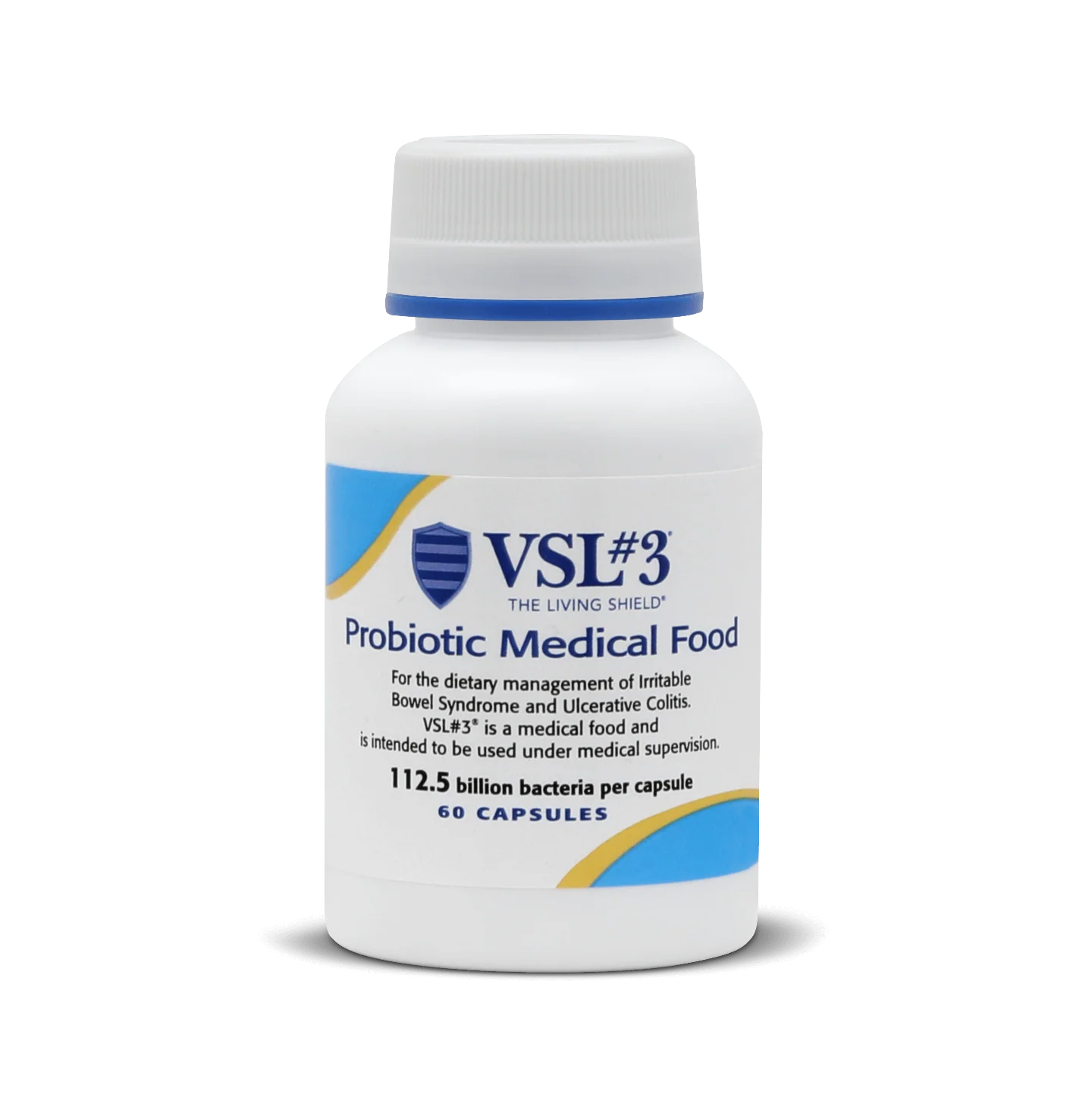
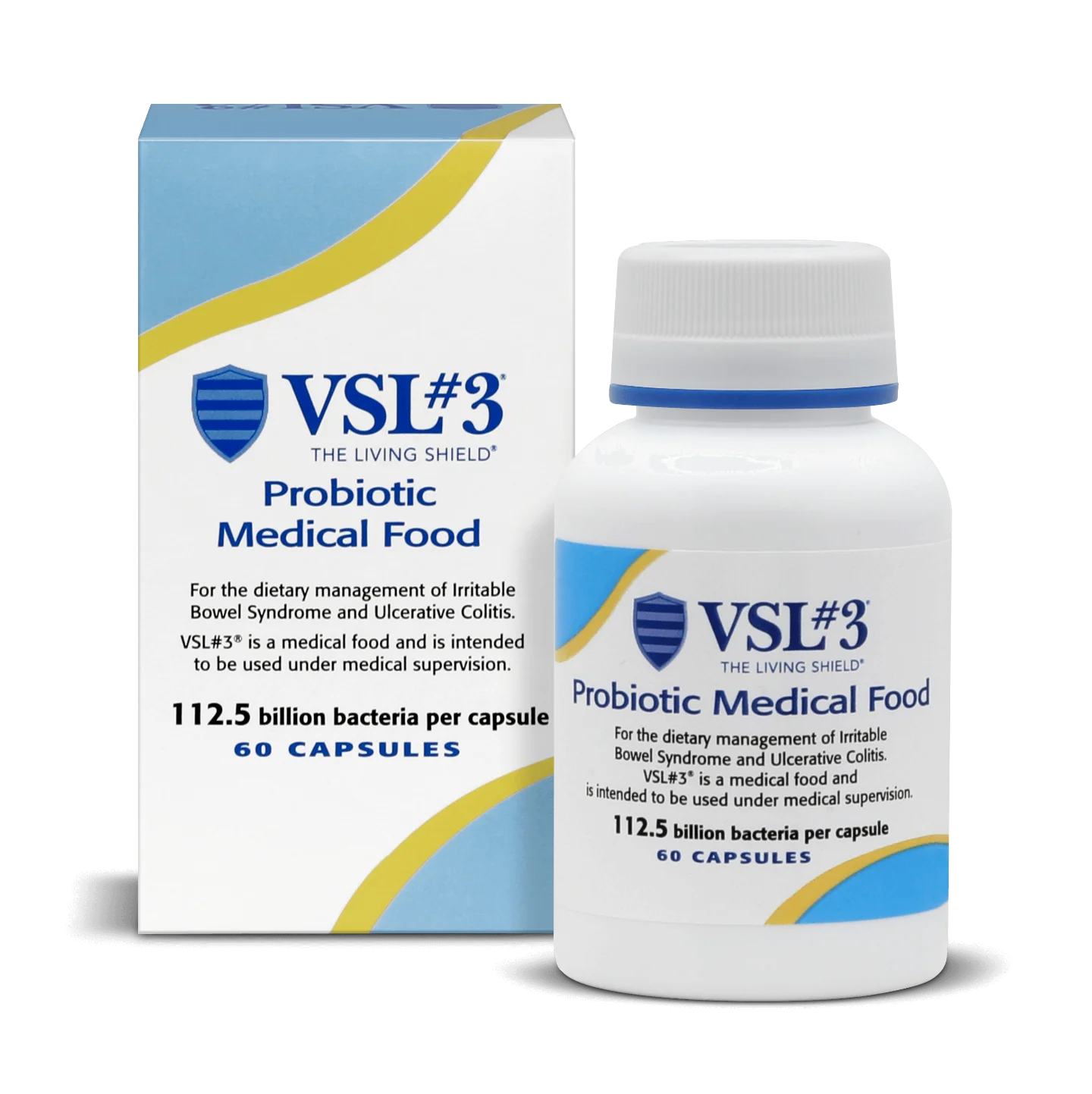
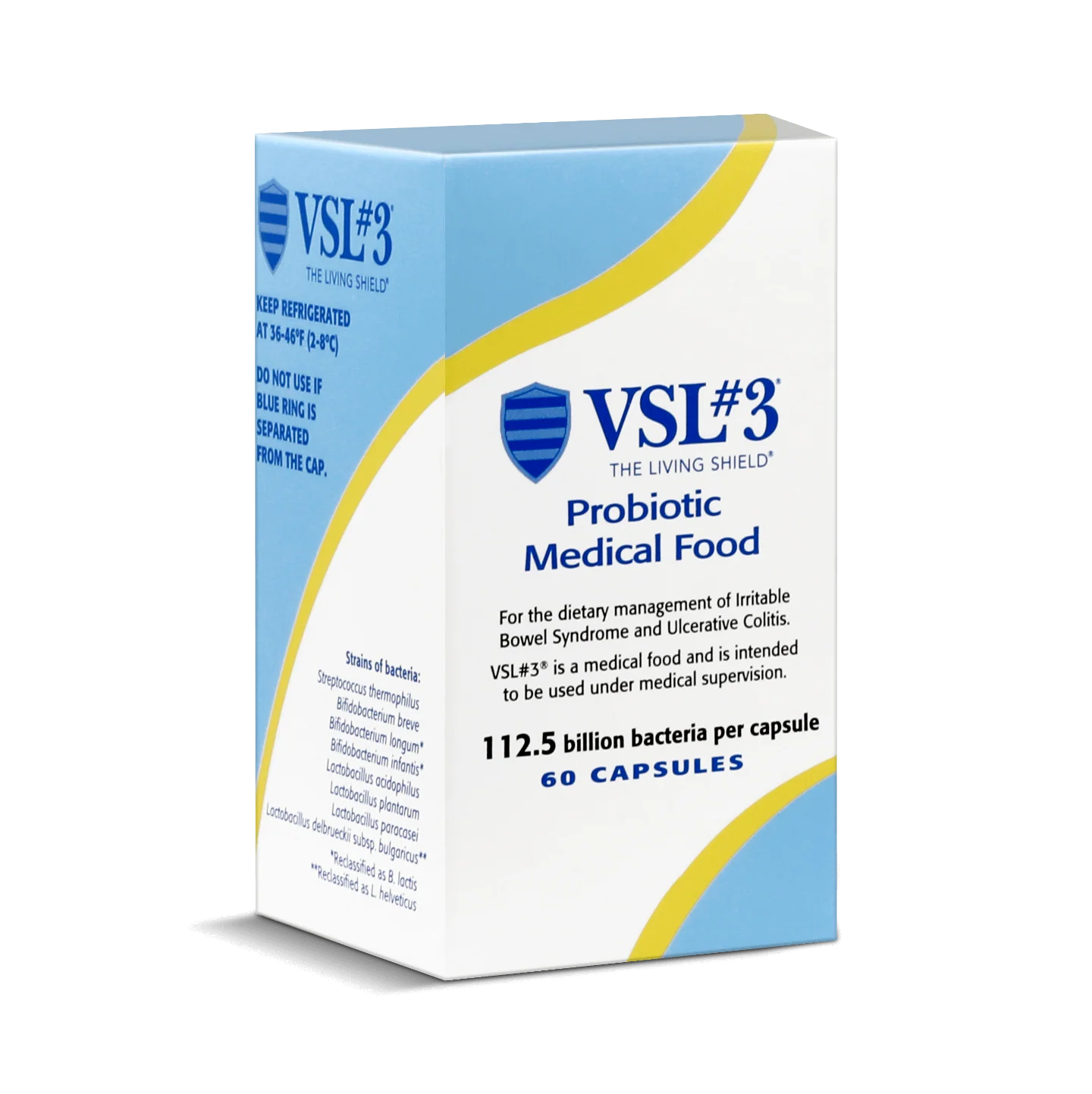
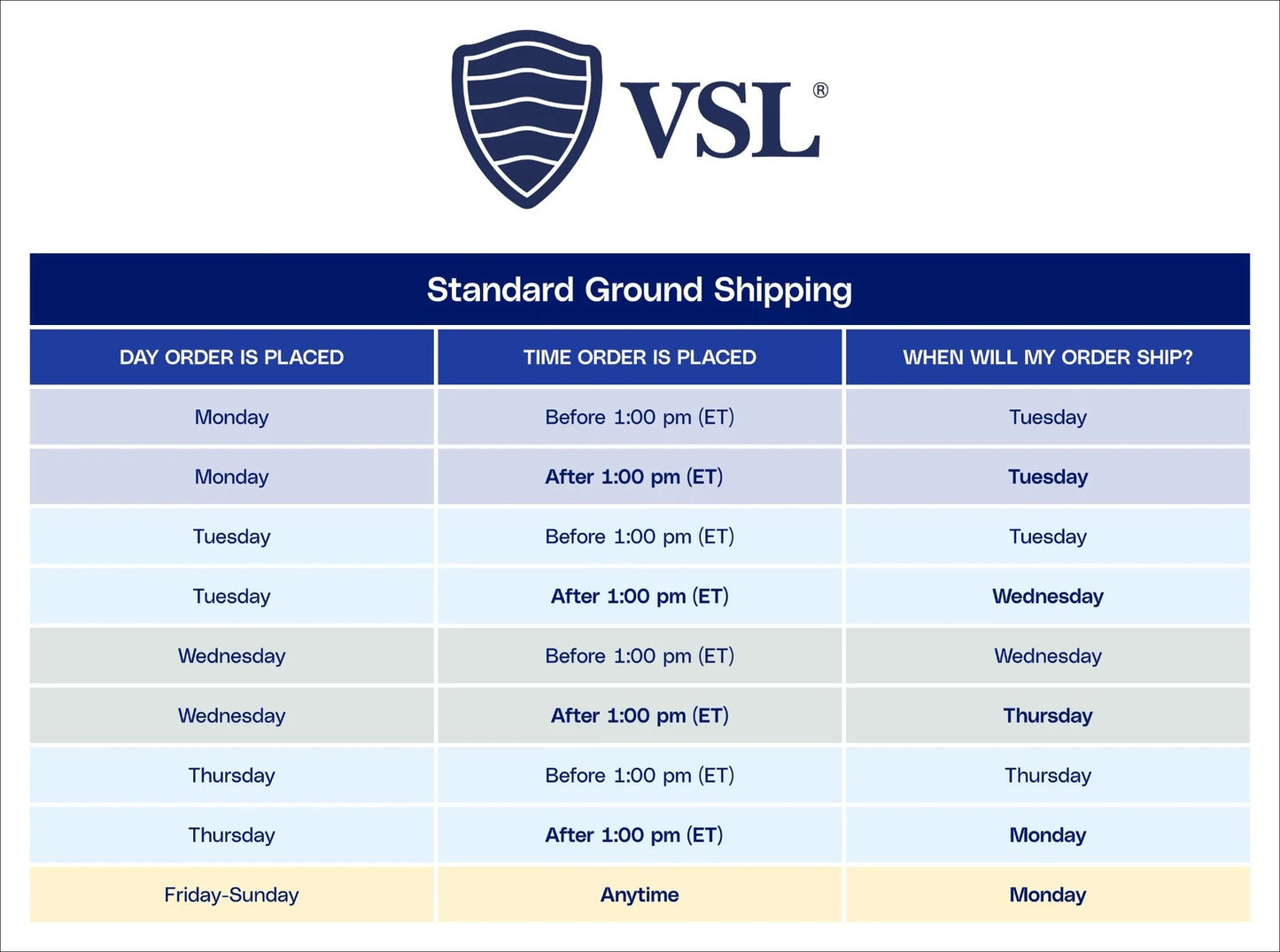
Nut-Free
Vegan
Dairy-Free
Soy-Free
Gluten-Free
Non-GMO
Nut-Free
Vegan
Dairy-Free
Soy-Free
Gluten-Free
Non-GMO
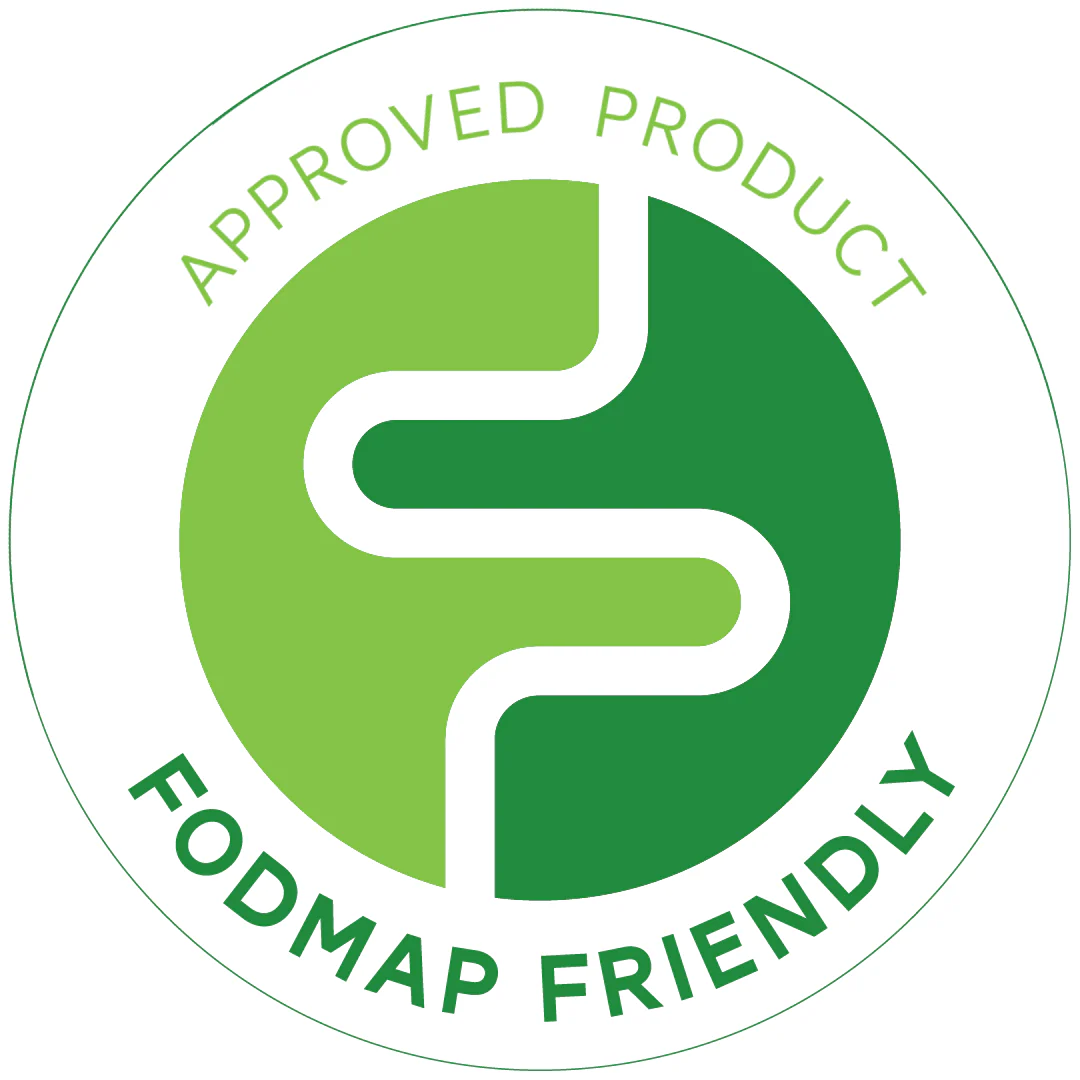

VSL#3® is a FODMAP Friendly Approved Product
The FODMAP Friendly lgo means our product has been independently tested and certifed low in fermentable carbs (fFoDMAPs) that can cause digestive discomfort. If you have lBS or a sensitive gut, this certification helps you choose products that are less likely to trigger symptoms like bloating, gas, or stomach pain.
For Those Who
Us vs Them
VSL#3®** vs Visbiome®**
VSL#3®**
Visbiome®**
CFU per Serving (billions)
112.5-900
112.5-900
# of Strains
8
8
Refrigerated
yes
yes
Medical Food
yes
yes
Dairy Free
yes
no
The #1 gastroenterologist-recommended multi-strain probiotics brand†
yes
no
Why Doctors Trust VSL#3®
Serious Gut Issues Or Everyday Wellness?
Whatever your need, our potent probiotics are scientifically formulated to support your digestive well-being:
- VSL#3® is a probiotic medical food intended for the dietary management of IBS, UC and pouchitis.
We Are Pros In Probiotics
We've been making powerful, multi-strain probiotics for over twenty years, and our products are available in over 40 countries. Our experience has helped us gain the expertise needed to provide you with the right gut health solutions. Learn more about what makes our products special.
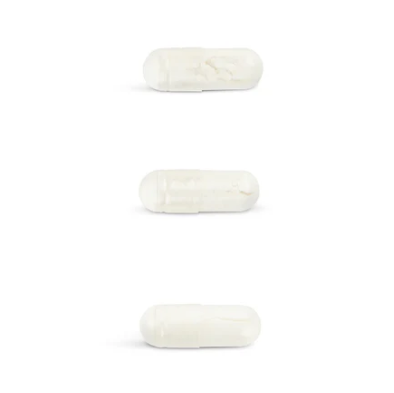
The Importance of Potency
Colony-forming units, or CFU, are a unit of measurement used to determine the number of bacterial cells in probiotics. Adequate CFU counts are essential for probiotics to work.
VSL#3® offers some of the highest-potency options available, ranging from 112.5 billion to 900 billion CFU per serving.
In addition, while some probiotic brands quote their potency based on the bacteria present at the date of manufacture, we guarantee the labeled CFU count of our products at expiration if stored under recommended conditions. This means you get more of what you pay for.
The Importance of Strain Diversity
Research suggests that biodiversity in the gut microbiota can symbiotically promote overall gut health and make the microbiota more capable and resilient, which, as mentioned above, can support multiple health systems.
VSL#3® contains eight complementary strains from three different genera. It has been shown to manage microbial imbalances associated with certain digestive conditions.
The Importance of Research
Research helps identify and verify the specific health benefits associated with different probiotic strains and formulations, to help ensure that consumers receive products that are both safe and effective.
We are committed to helping the scientific and medical communities better understand the effects of probiotics on the microbiota and overall health. VSL#3® has been the subject of more than 40 scientific publications in the last five years alone. Researchers turn to VSL#3® because of its potency, eight-strain diversity, refrigerated bacteria, and overall quality.
Real Reviews, Real Results
ABOUT VSL#3®

Do VSL® products contain milk or dairy?
Do VSL® products contain milk or dairy?
VSL®products are milk-free and dairy-free!
How should I store my VSL® products?
How should I store my VSL® products?
VSL#3®should be kept refrigerated; however, it can be stored at room temperature (77°F) for up to two weeks without affecting the labeled potency.
What To Expect When First Starting VSL®?
What To Expect When First Starting VSL®?
Is this your first time taking probiotics? Some people may notice mild digestive changes like occasional bloating when they start taking probiotics. This is normal. It's like introducing new guests to your gut party—things might get a bit lively as your microbiome adjusts. But fear not! These side effects typically subside within a few days or weeks.
And here's the exciting part: for those dealing with the discomforts associated with digestive issues, probiotics like VSL#3® and VSL4™ Gut offer hope. With their beneficial bacteria, our products are here to help you find digestive relief and support your gut health goals.
Note it may take up to one month for the colonization of the gut to become optimally balanced.
VSL#3® Symptom Relief
VSL#3® Symptom Relief
In a March 2022 suney of gastroenterolgist, 93% of respondent stated that their patients were satisfied with VSL#3® .The folowing were the top symptam improvements observed by the doctors:
Less bloating
Overall symptom improvement
Less pain
Better stool frequency, less diarrhea
VSL#3®, IBS and the Low FODMAP Diet
VSL#3®, IBS and the Low FODMAP Diet
Ever heard of FODMAPs? FODMAP stands for fermentable oligosaccharides, disaccharides, monosaccharides, and polyols. Essentially, these are types of carbs that your small intestine finds a bit tricky to absorb. Foods that contain FODMAPs include dairy (milk, ice cream, yogurt, more), many fruits (apples, bananas, peaches, watermelon, cherries, coconut, pineapple, raspberries, blueberries, cranberries, avocado, more), vegetables (broccoli, eggplant, sweet corn, sweet potato, green beans, cabbage, celery, chilis, onions, mushrooms, more), and grains (wheat, barley, rye and more).
For some folks, munching on foods rich in FODMAPs can lead to uncomfortable digestive issues like cramping, diarrhea, constipation, bloating, and gas. These symptoms often go hand-in-hand with conditions like IBS.
A low FODMAP diet is a popular approach to managing IBS symptoms; however, it is restrictive and eliminates some staple foods. As a result, some on the diet may be at risk of reduced intake of key nutrients like fiber, iron, zinc, B and D vitamins and natural antioxidants. The long-term impact of such a diet is poorly understood, and the drastic reduction of FODMAP consumption could have consequences on your metabolism and intestinal microbiota2. In addition, adherence to a LOW FODMAP diet can be difficult. But, there is an alternative!



















